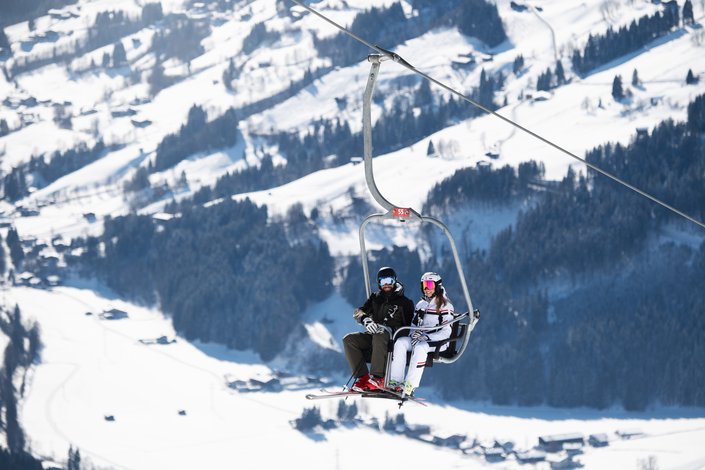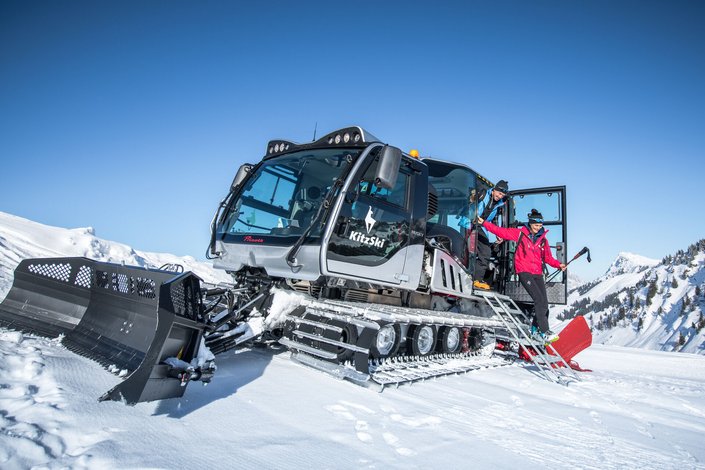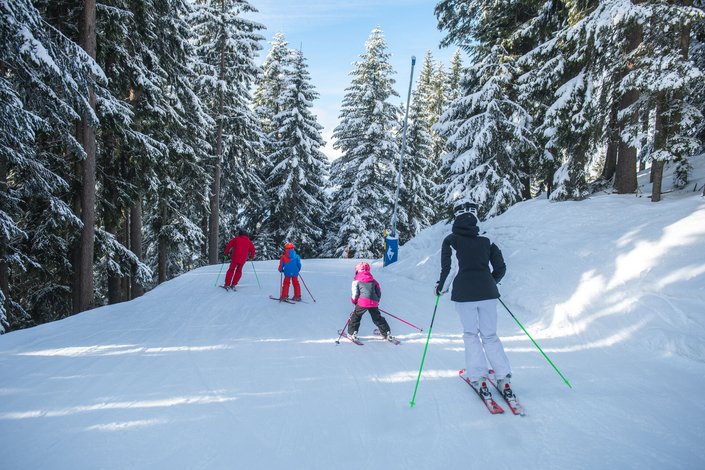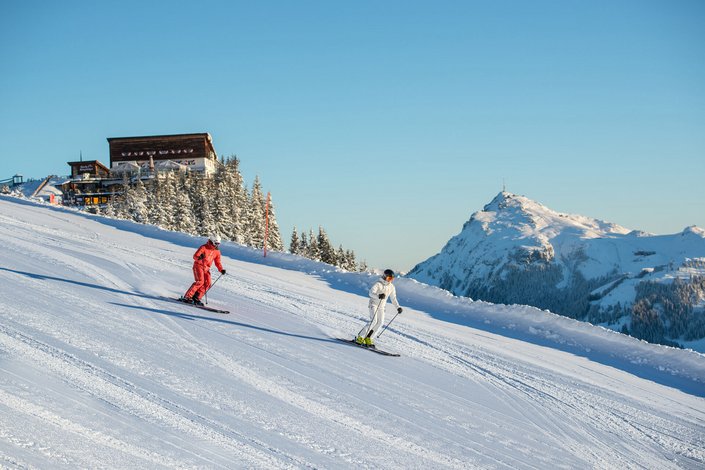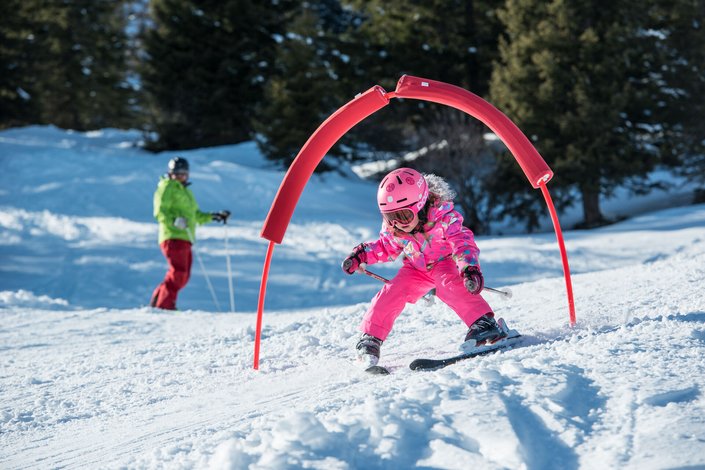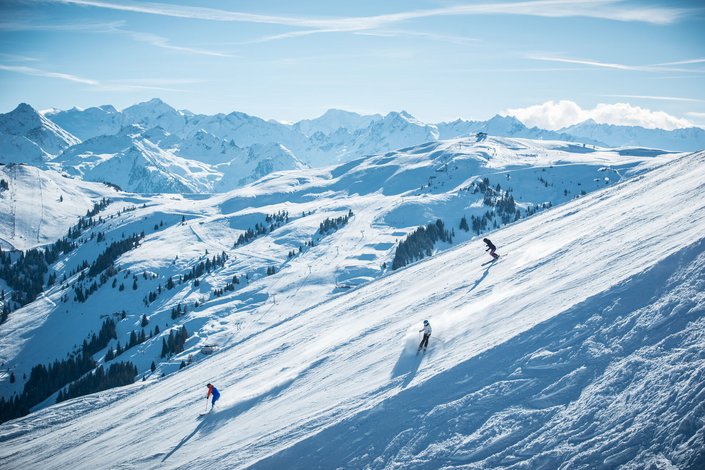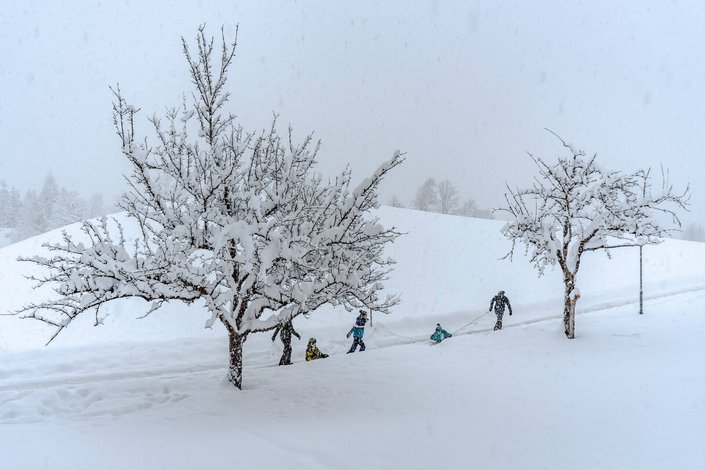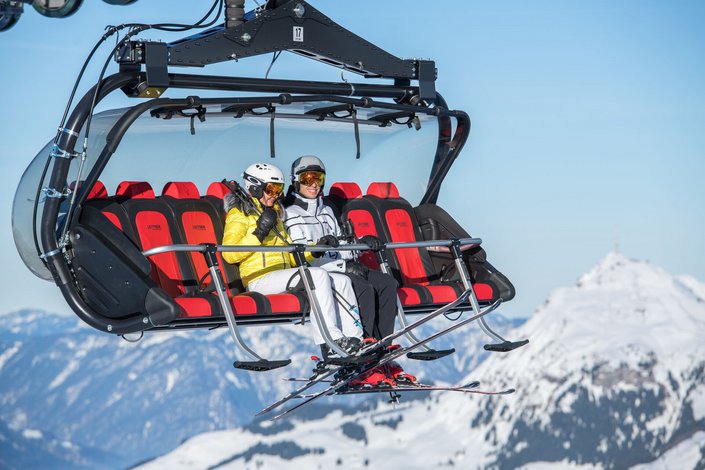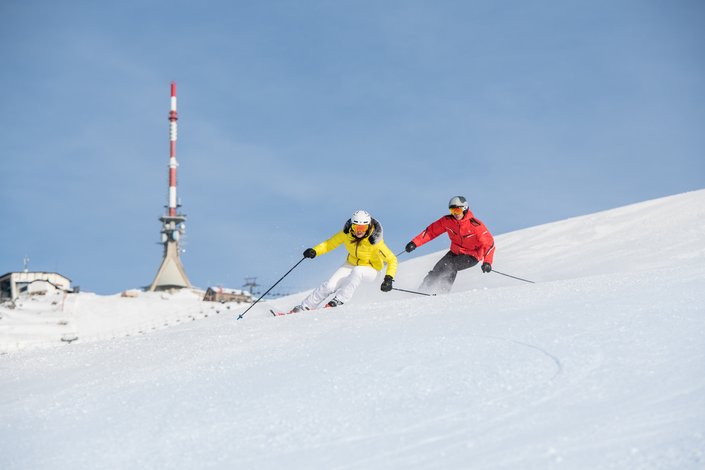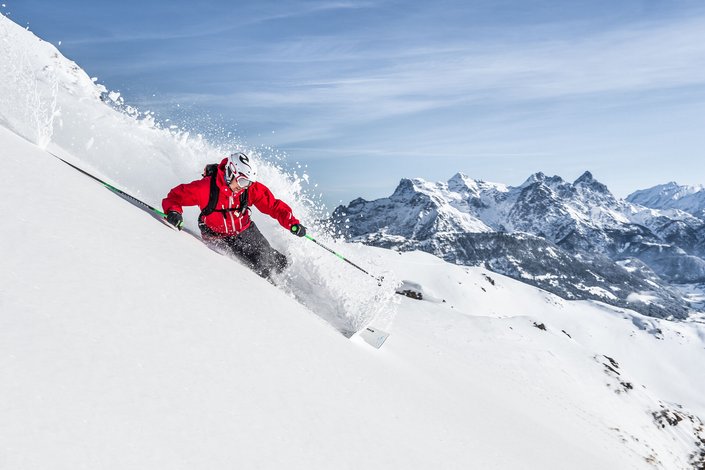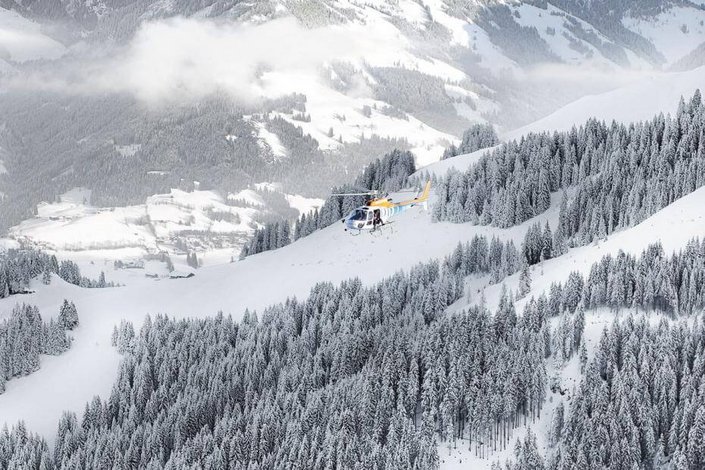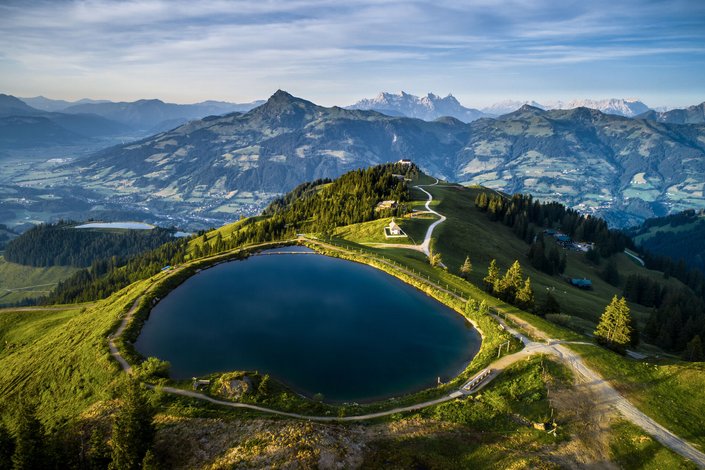Off to a new ski season
Günther Aigner from Waidring, has been dealing with the issues surrounding the "future of alpine skiing" for many years. To this end, he completed diploma studies in sports science and business education at the Leopold Franzens University in Innsbruck and at the University of New Orleans ("UNO", USA).
Five theses on the future of alpine skiing
After some important research activities at the Institute for Sports Science at the University of Innsbruck, the change to tourism marketing followed. At Kitzbühel Tourism, Günter was responsible for the many events as well as winter marketing in Kitzbühel from 2008 to July 2014.
Future: Skiing
Since August 2014, Günther has now been working full-time as a ski tourism researcher and heads the Future Skiing Platform. The Tyrolean first presented his "Five Theses on the Future of Alpine Skiing" at the European Forum in Alpbach in summer 2012. Numerous expert lectures at home and abroad have followed in recent years.
Günther Aigner
Günther, how did you become a Tyrolean ski tourism researcher? What is the idea behind it and, above all, what exactly does a ski tourism researcher do? - That's a good question. Because a ski tourism researcher has not really existed until now. I invented the profession just under two years ago, so there is hardly any experience of what a normal working day might look like. In any case, I came to this job because I thought: there is a so-called expert for everything. Only in skiing and ski tourism, with its enormous importance for Tyrol, there is no expert. So I thought, this should change. So I want to look at how long people have been skiing and why they do it (motives for practicing skiing). I want to know how snow levels have changed over the last 120 years, and what countries our ski tourists come from. It is also important to find out whether fewer and fewer children and young people are actually skiing, and whether skiing in general is becoming a hobby of the "rich and beautiful".
Can you tell us something more specific about the "Five Theses on the Future of Alpine Skiing"? - My thesis number one is that tourist skiing will once again become a kind of luxury sport, as it was in the 1920s and 1930s. The economic boom years after the war made ski tourism a mass phenomenon, but now it's belt tightening. So fewer people will be able to afford skiing. Thesis two states that winters on the mountains have become colder, not warmer, over the past 30 years. This sounds strange, but it is quite understandable if you look into the subject more closely. The glaciers are melting so much because the summers have become hotter and sunnier. Thesis number three tries to substantiate that our ski tourists always come from those countries where the economy is flourishing. Thesis number four states that in the large European markets, such as Germany or the Netherlands, fewer and fewer children are skiing. Thesis number five deals with ski history. Man has been skiing for at least 5,000 years.... and will continue to do so for the foreseeable future.
How important is it that our children learn to ski at preschool age? - Very important. As a child, you can learn faster and more comprehensively than an adult can. Research shows that people who started skiing as a child often enjoy skiing for life. Skiing is healthy, you're out in nature and fresh air, you can have fun with friends, and you can continue the sport into old age. Skiing is just great, and it's nice when children are lucky enough to learn how to ski. That's why in Kitzbühel there are great initiatives that make skiing possible for ALL children, at very little cost.
The way young people spend their free time has changed a lot in recent years, what would be your suggestions to counteract this? - From the point of view of skiing, I would suggest that the ski resorts start a joint campaign that puts skiing in a great light, instead of the stupid and inflationary TV commercials, in which the customer can hardly distinguish ski resort A from ski resort B. I would like to see an advertising campaign that conveys the message that skiing is great, that it is a great sport, and that it is a great way of life. I would like to see an advertising campaign that can convey the message that skiing is great, is healthy, is fun, is simply the most beautiful hobby in the world. We need a positive mood for skiing. Especially for children and young people. With well-known testimonials that could also appeal positively to the ever-growing group of migrants.
After all, there used to be winters with little or no snow. Are there any research results here that prove that less snow will fall in the future due to global warming? - In short, for the past 25 years or so, virtually all climate models have said that there will be less and less snow, and that winters will be warmer and shorter. In those 25 years, none of that has happened. So we have to distinguish: University climate models have been extremely pessimistic for 25 years, and remain so for the future. But the measured data show that there is currently more snow in the Alps than in the 1920s and 1930s. Unfortunately, you don't read about this in the media.
Skiing is becoming more and more expensive? How do you think skiing will still be affordable in 10 years? - Yes, skiing will still be affordable if you have low expectations. But if you want to be catapulted up the mountain at a speed of 7 meters per second with an eight-chair lift including heated seats and a weather protection hood, you will have to dig deep into your pockets. So we consumers decide whether skiing is cheap or expensive by our choice of ski resort. We also decide whether we buy a used car or an Audi A6 with all the extras.
Can the small ski areas survive the next few years? Is it no longer possible without mergers? - The mergers are a consequence of globalization: faster, bigger, further. Not only in shopping malls or cinemas, but also in ski resorts. People want more, they have greater demands than before. That's why we will see many more mergers in the next 10 years, while one or two small and medium-sized ski areas will have to close. People complain that skiing is getting too expensive for them, but then they go to the premium ski resorts, which are great, but also expensive.
More and more winter sports enthusiasts are crowding off the secured slopes, freeriding has become really trendy in recent years, is the skier changing? Is there a rethink here in tourism, mountain railroads, etc.? - Freeriding is the current desire of skiers. In the 1960s and 1970s, this was wedeling or so-called "beautiful skiing." The nicer you skied, the cooler. Then, in the 1990s, everyone wanted to carve. And now everyone wants to freeride. It's a zeitgeist phenomenon that people want to get back to nature. That will turn around again at some point. But no matter what the zeitgeist is at the moment: Deep snow skiing will always have a certain popularity. Once you've experienced that feeling of freedom, you can't get away from it. And with the new, wider skis, powder skiing is easier to learn than it used to be. This also fuels the current "freeriding" trend.
As a ski tourism researcher, maybe you can tell us when the big snow is coming? What do you think? - The question of significant weather is as old as mankind. "Will the summer be fruitful?" "Will we be spared major storms?" Such or similar were the anxious questions of people in all times. Today, the tourist-minded person asks: "When will the big snow come this year?". This question is very interesting, but unfortunately it cannot be answered. I myself am not a meteorologist, but I have many meteorologists in my network "Future Skiing" with whom I maintain intensive contact. The unanimous opinion is that exact weather forecasts do not go beyond a period of 3 to 5 days. In tendencies one can "guess" the weather up to 10 days, but with great uncertainties. The fact is that the last two winters started very late, only after Christmas, but lasted very long in spring. Maybe this year we can admire an early start of winter, which will finally give us once again a beautiful romantic Advent.
Do you also deal with winter in the summer? - Of course I do. Winter keeps me busy all year round. In summer I have more time for research and for my statistics, which show up in the computer as miles-long excel files. In winter, I try to spend a lot of time on the slopes and in the backcountry. As a ski tourism researcher, one must not completely degenerate into an office clerk. You also have to get out into nature.
Thanks again for the interesting answers and continue to enjoy the research around the winter!
Here much more on the topic Future Skiing.
![[Translate to EN:] Abfahrtsonnspitz](https://www.kitzbuehel.com/uploads/blog/_processed_/f/e/csm_dsc00130_ctomrabl_abfahrtsonnspitz_74b41f4f00.jpg)
